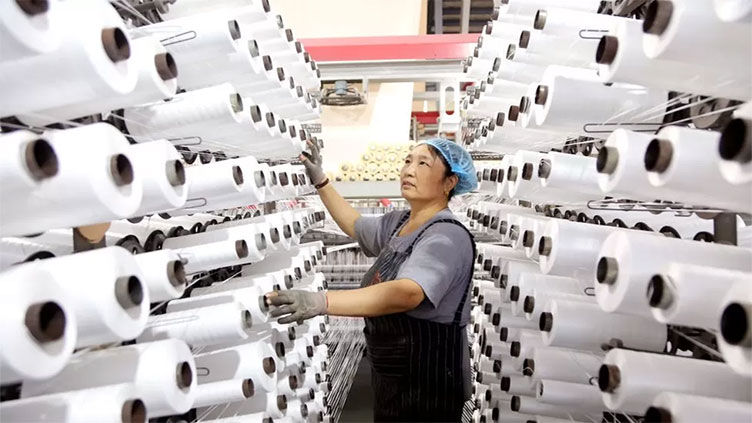What China's economic problems mean for the world

Business
China is responsible for more than a third of the growth seen in the world
(Web Desk) - There is a saying that when the United States sneezes, the rest of the world catches a cold. But what happens when China is unwell?
The world's second-largest economy, home to more than 1.4 billion people, is facing a host of problems - including slow growth, high youth unemployment and a property market in disarray.
While these issues add up to a major headache for Beijing, how much does it matter to the rest of the world?
Analysts believe worries of an impending global catastrophe are overstated. But multinational corporations, their workers and even people with no direct links to China are likely to feel at least some of the effects. Ultimately, it depends on who you are.
"If Chinese people start cutting back on eating out for lunch, for example, does that affect the global economy?" asked Deborah Elms, executive director of the Asian Trade Centre in Singapore.
"The answer is not as much as you might imagine, but it certainly does hit firms who directly rely on domestic Chinese consumption."
Hundreds of big global companies such as Apple, Volkswagen and Burberry get a lot of their revenue from China's vast consumer market and will be hit by households spending less. The knock-on effects will then be felt by the thousands of suppliers and workers around the world who rely on these companies.
When you consider that China is responsible for more than a third of the growth seen in the world, any kind of deceleration will be felt beyond its borders.
The US credit rating agency Fitch said last month that China's slowdown was "casting a shadow over global growth prospects" and downgraded its forecast for the entire world in 2024.
However, according to some economists, the idea that China is the engine of global prosperity has been exaggerated.
"Mathematically, yes, China accounts for around 40% of global growth," says George Magnus, an economist at the University of Oxford's China Centre.
"But who is that growth benefitting? China runs a huge trade surplus. It exports so much more than it imports, so how much China grows or doesn't grow is really more about China than it is about the rest of the world."
Nevertheless, China spending less on goods and services - or on housebuilding - means less demand for raw materials and commodities. In August, the country imported nearly 9% less compared to the same time last year - when it was still under zero-Covid restrictions.
"Big exporters such as Australia, Brazil and several countries in Africa will be hit hardest by this," says Roland Rajah, director of the Indo-Pacific Development Centre at the Lowy Institute in Sydney.
While reduced Chinese investment abroad is a possibility, it is unclear how else China's domestic economic situation will affect its foreign policy.

